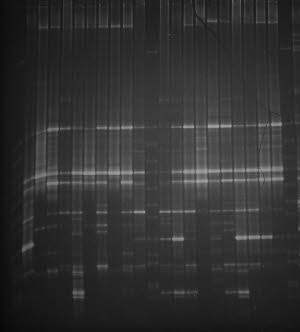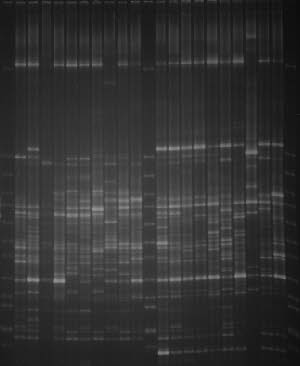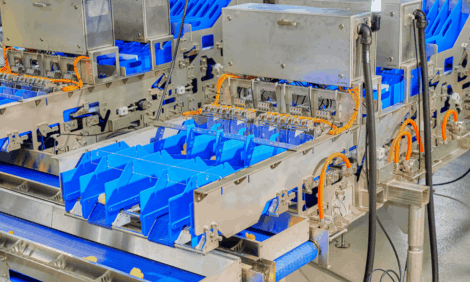



Poultry Production Without Antimicrobials
A healthy intestine is vital for good health and production in poultry, according to Dr Richard Bailey, poultry health scientist with Aviagen.Speaking on the importance of the intestinal microbiota for chicken health at the joint session of the British Society of Animal Production and the UK Branch of the World's Poultry Science Association earlier this year, Dr Bailey said that one of the key aims of producing animals for the food chain is to obtain good growth rates and performance through feed conversion efficiency while maintaining optimal animal health. To achieve this, a healthy gut is essential, he said.
Optimal intestinal health is heavily reliant upon the acquisition and maintenance of a balanced intestinal microbiota, which has become one of the key topics in the European poultry industry.
| Importance of gut microbiota in health and disease |
|---|
| Beneficial effects of intestinal bacteria |
|
Microorganisms reside in all known habitats, therefore, animals have had to evolve in a world full of bacteria, viruses, fungi and protozoa. Part of the evolutionary process has resulted in symbiotic relationships between an animal and its microbial residents.
The intestinal microbiota of an animal is a complex population of microbes dominated by a large bacterial community. The composition of this community is highly dynamic with spatial shifts in population along each region of the intestinal tract in relation to the change in conditions of each section.
With total bacterial cells numbers outnumbering the host's own cell number by a ratio of 10 to one, it is not surprising that the intestinal microbiota plays a vital part in the health and well-being of all animals, Dr Bailey said.
Many mechanisms have been identified by which the microbiota promotes host health. It has been found that the intestinal microbiota aids digestion, protects against pathogens, produces nutrients and plays a role in the development and maturation of the immune system.


With the advent of culture-independent DNA technologies, our knowledge of the composition of the intestinal microbiota has improved greatly, explained Dr Bailey. Using these techniques, it has been suggested that the intestinal microbiota of the chicken comprises around 640 species of bacteria from 150 different genera. The increased application of molecular methods has revealed that culture-based methods had vastly underestimated the complex community of bacteria within an animal's microbiota.
It has been demonstrated that the composition of the intestinal microbiota is affected by factors such as sex, age, dietary intake and health status of the host. The exact relationship between the host and its resident microbiota is still an active area of research and it is becoming ever more apparent that the intestinal microbiota is highly influential in terms of host health and immunity. Culture-independent techniques combined with '-omics' technologies have allowed microbiologists to learn more about the relationship between the host and its resident microbiota.
There is a delicate balance between the host, intestinal microbiota, the intestinal environment and diet, continued Dr Bailey. If there is an imbalance in the relationship, the composition of the intestinal microbiota may alter. The shift in microbial populations can have a negative effect on the host, leading to poor growth and impaired performance. This is seen in cases of dysbacteriosis.
Dysbacteriosis is a digestive condition of poultry and has been broadly described as an overgrowth of the intestinal microbiota – especially members of the Bacteriodetes, Clostridium spp. and E. coli – which can lead to non-specific enteritis. Onset is usually between 20 and 30 days of age and it is thought to be triggered by changes in diet, poor management and overcrowding. The condition rarely causes clinical signs but it can adversely affect bird performance.
Typically, dysbacteriosis is treated using antimicrobial therapy. However, with increasing pressure on veterinarians and poultry producers in many countries to reduce antibiotic use, there is a need to find alternatives to promote good intestinal health and prevent intestinal upsets.
| What happens when there is an imbalance? |
|---|
| Possible consequences of an imbalance in the intestinal microbiota |
|
The management of intestinal health without antimicrobials is a wide area of research. The use of a probiotic supplement is a popular approach, said Dr Bailey. Probiotics have been found to boost enteric health by inhibiting the growth and/or attachment of less favourable bacteria in the intestinal tract or by modulating the composition of the intestinal microbiota towards a more favourable community.
Intestinal bacteria derive most of their energy from the host's diet so poultry feed composition has a major influence on bacterial populations and it is possible to modulate the microbiota by altering the diet and including specific components, such as essential oils, oligosaccharides (in the form of prebiotics), enzymes and specific carbohydrate sources.
Deciding on the best approach is not easy as results from intervention studies can vary. The key to the maintenance of intestinal health is to understand how the intestinal microbiota changes at key points in the bird's life and how to prepare the bird for these changes.
The combination of practical field experience from poultry producers and veterinarians with laboratory research into the relationships between the host and its microbiota is likely to reveal further ways by which enteric health can be improved in future.
Summing up, Dr Bailey said that intestinal health is vital for good overall health and performance in poultry, as in other animals. Disruption of the resident bacteria can have detrimental effects, leading to digestive upsets and a loss in performance. However, he said, there is a mounting body of evidence indicating that the intestinal microbiota can be successfully modulated by the use of probiotics, when the appropriate product is administered correctly and at the appropriate time.
Research into alternatives to antimicrobials remains an important area of study. A number of research groups from across the globe have demonstrated in laboratory trials that there is a place for products such as probiotics in helping to control gut pathogens, thus reducing the need for antimicrobials. They also have potential to help establish a healthy gut microbial population early in the chick's life and potentially prevent intestinal imbalances as the result of common stressful events, such as feed change, vaccination or thinning, added Dr Bailey.
August 2011










